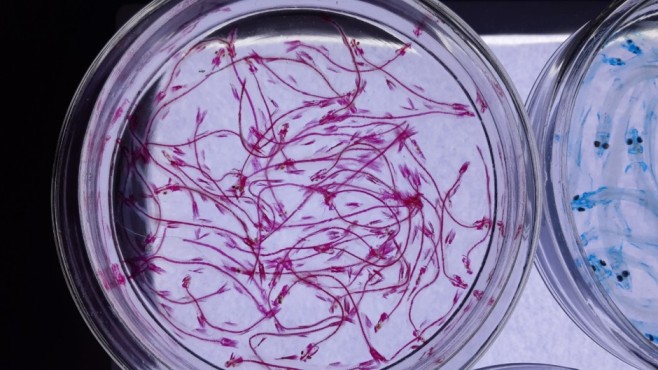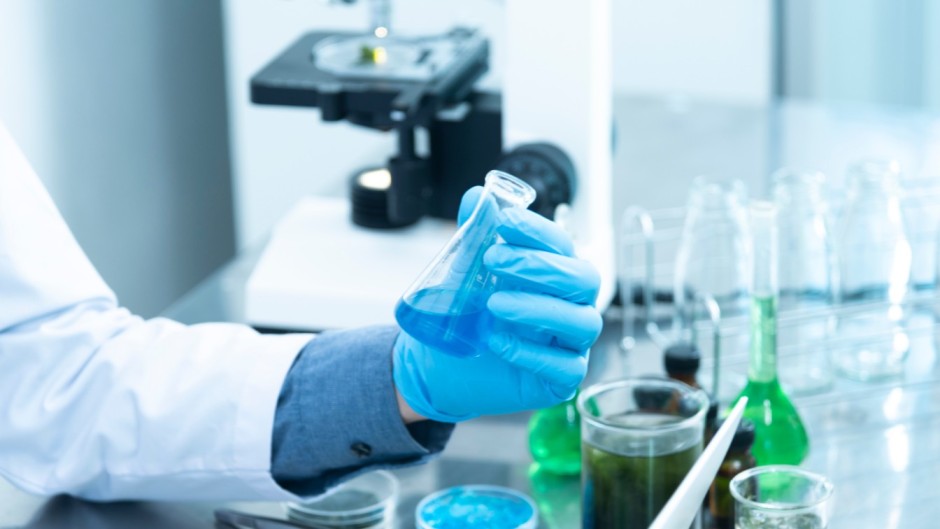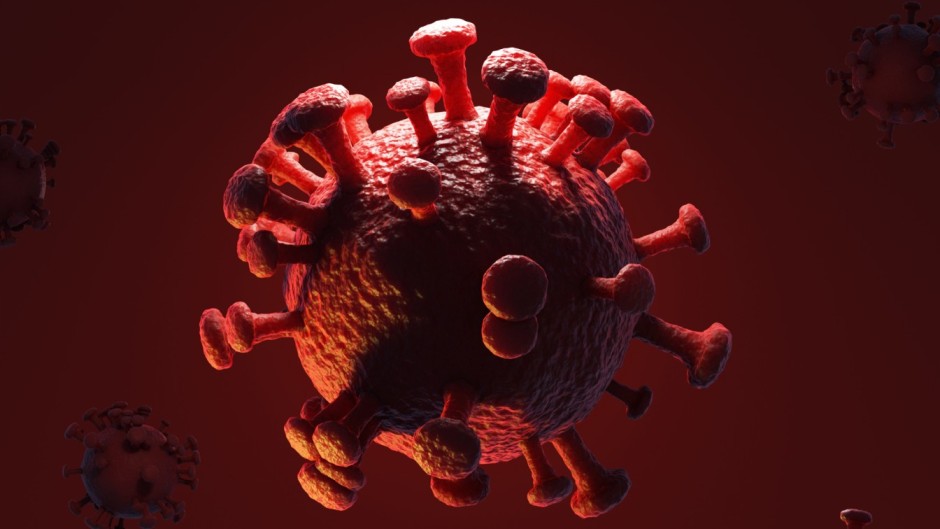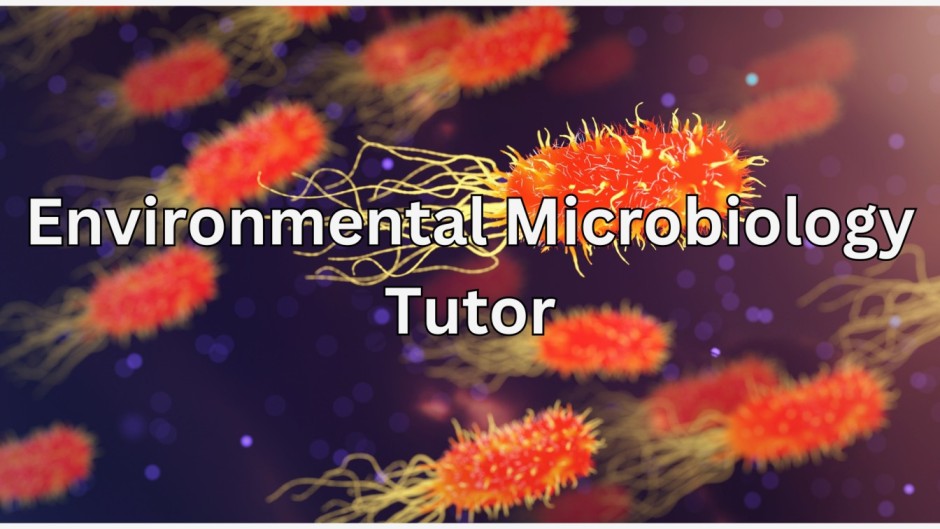Environmental Microbiology Tutor: A Guide to Understanding the Microbial World Around Us
Environmental microbiology is a captivating and essential field that investigates the role of microorganisms in natural ecosystems. These microscopic organisms play a critical role in maintaining ecological balance, influencing processes such as nutrient cycling, decomposition, and pollution degradation. As our planet encounters escalating environmental challenges—ranging from climate change and soil degradation to water contamination—the importance of understanding the microbial world has never been more pronounced.
The study of microbes in diverse environments such as soil, water, and air reveals their pivotal contributions to environmental health and sustainability. For instance, soil bacteria are crucial for nutrient cycling and plant growth, while aquatic microbes help in water purification and nutrient recycling. Airborne microorganisms can affect air quality and contribute to climate dynamics. Given the intricate nature of these interactions, a comprehensive understanding of environmental microbiology is essential for addressing environmental issues and developing sustainable solutions.
An Environmental Microbiology Tutor can be an invaluable asset for both students and professionals seeking to deepen their knowledge in this complex field. These tutors offer tailored guidance to help learners navigate the multifaceted aspects of microbial processes and their impact on the environment. By providing personalized instruction, a tutor can help clarify challenging concepts, provide hands-on experience with laboratory techniques, and foster a deeper appreciation for the role of microorganisms in environmental systems.
The Importance of Environmental Microbiology
Environmental microbiology is the study of the relationship between microorganisms and their environments. This branch of microbiology is vital for several reasons:
- Ecosystem Health: Microbes play a crucial role in maintaining the health of ecosystems. They are involved in nutrient cycling, decomposition of organic matter, and even the remediation of pollutants.
- Climate Change: Microorganisms impact climate processes, such as carbon and nitrogen cycles, influencing greenhouse gas emissions and climate patterns.
- Public Health: Understanding microbial processes in the environment helps in managing water quality, waste treatment, and the spread of diseases.
As these issues become increasingly critical, the need for education and expertise in environmental microbiology is growing. This is where an Environmental Microbiology Tutor can make a significant difference.
What Does an Environmental Microbiology Tutor Do?
An Environmental Microbiology Tutor provides personalized instruction in the principles and applications of environmental microbiology. Whether you’re a student looking to excel in your studies, a professional seeking to deepen your understanding, or someone with a general interest in the environment, a tutor can tailor lessons to meet your specific needs.
Key Areas of Focus:
- Microbial Ecology: Understanding the diversity, distribution, and roles of microorganisms in various environments.
- Biogeochemical Cycles: Exploring how microbes contribute to the cycling of essential elements like carbon, nitrogen, and sulfur.
- Environmental Biotechnology: Learning about the application of microbes in bioremediation, waste treatment, and sustainable agriculture.
- Pathogen Monitoring: Studying how environmental microbiology is used to detect and manage pathogens in water, soil, and air.
- Molecular Techniques: Gaining hands-on experience with tools like PCR, DNA sequencing, and metagenomics to study microbial communities.
Why You Might Need an Environmental Microbiology Tutor
The complexity of environmental microbiology can make it challenging to grasp without proper guidance. Here are some reasons why working with a tutor can be beneficial:
- Personalized Learning: Tutors can customize lessons based on your background, learning style, and goals, ensuring you grasp the material effectively.
- Deeper Understanding: With one-on-one instruction, you can delve deeper into topics, ask questions, and explore areas of interest that might not be covered in standard coursework.
- Skill Development: Tutors can help you develop practical skills, such as laboratory techniques and data analysis, which are essential for a career in environmental microbiology.
- Exam Preparation: Whether you’re preparing for an exam or working on a research project, a tutor can provide targeted support to help you succeed.
The Growing Demand for Environmental Microbiology Experts
The demand for experts in environmental microbiology is on the rise due to increasing environmental concerns and the need for sustainable solutions. Below are some statistics that highlight the importance of this field:
| Area of Expertise | Average Salary (USD) | Projected Job Growth (2020-2030) |
|---|---|---|
| Environmental Microbiologist | $70,000 | 8% |
| Environmental Scientist and Specialist | $73,230 | 8% |
| Biochemists and Biophysicists | $94,270 | 5% |
| Microbiologists | $84,400 | 3% |
| Environmental Engineers | $92,120 | 4% |
Source: U.S. Bureau of Labor Statistics
The Impact of Environmental Microbiology
Environmental microbiology has a profound impact on various sectors, from agriculture and public health to energy and conservation. Here’s a closer look at some of the ways this field is making a difference:
1. Bioremediation
Microorganisms are used to clean up contaminated environments, such as oil spills or heavy metal pollution. By breaking down harmful substances into less toxic forms, microbes help restore polluted sites.
Example: The use of Pseudomonas putida, a bacterium, in the degradation of toluene, a toxic compound found in gasoline.
2. Water Treatment
Microbes play a key role in the treatment of wastewater and drinking water. They help break down organic material, reducing pollutants and pathogens in water systems.
Example: Activated sludge processes use bacteria to degrade organic matter in sewage.
3. Agriculture
Beneficial microbes enhance soil fertility and plant growth. They fix nitrogen, decompose organic matter, and protect plants from pathogens.
Example: Rhizobium bacteria form symbiotic relationships with legumes, fixing atmospheric nitrogen and making it available to plants.
4. Climate Change Mitigation
Microbial processes regulate greenhouse gases like carbon dioxide and methane. Understanding these processes is crucial for developing strategies to mitigate climate change.
Example: Methanotrophic bacteria consume methane, a potent greenhouse gas, reducing its release into the atmosphere.
Environmental Microbiology in the Classroom
Environmental microbiology is an interdisciplinary field that combines elements of biology, chemistry, and environmental science. It is often introduced at the college level, but its principles can be taught at earlier stages with the right approach.
Integrating Environmental Microbiology into Education:
- Hands-on Experiments: Students can explore microbial processes through lab experiments, such as water quality testing or soil microbiome analysis.
- Field Studies: Observing microbial activity in natural environments, like wetlands or forests, provides practical insights into their ecological roles.
- Collaborative Projects: Group projects focusing on real-world issues, such as bioremediation or climate change, can enhance understanding and engagement.
Example Lesson Plan: Exploring Soil Microbes
| Lesson Title | Exploring Soil Microbes |
|---|---|
| Objective | To understand the diversity and function of microbes in soil. |
| Materials Needed | Soil samples, Petri dishes, agar, microscope, lab notebooks |
| Activity | Students collect soil samples from different locations, culture microbes on agar plates, and observe the microbial colonies under a microscope. They record their findings and discuss the role of these microbes in the environment. |
| Discussion Questions | What types of microbes did you find? How do these microbes contribute to soil health? What factors might influence the diversity of soil microbes? |
Online Resources for Environmental Microbiology
In addition to working with an Environmental Microbiology Tutor, there are several online resources that can support your learning:
- Coursera: Offer online courses in environmental microbiology and related fields.
- Microbiology Society: Provides educational resources, including webinars, articles, and research papers.
- EPA’s Microbial Toolbox: A resource for understanding waterborne pathogens and treatment options.
- NCBI’s Microbial Genomes: A database for exploring microbial genetics and genomics.
Statistics: The Role of Microbes in Environmental Processes
To illustrate the importance of microbes in environmental processes, consider the following statistics:
| Process | Microbial Contribution | Global Impact |
|---|---|---|
| Nitrogen Fixation | 50-70% of global nitrogen fixation is microbial | Essential for plant growth and agriculture |
| Methane Oxidation | Microbes reduce methane emissions by 15-20% | Helps mitigate climate change |
| Carbon Sequestration | Microbial activity in soil sequesters 25% of global carbon | Reduces atmospheric CO2, mitigating global warming |
| Decomposition | Microbes decompose 80-90% of organic matter | Maintains ecosystem balance by recycling nutrients |
Source: Various scientific studies on microbial ecology
The Future of Environmental Microbiology
As environmental challenges continue to evolve, the role of environmental microbiologists will become even more critical. Emerging areas of research include:
- Microbial Genomics: Advances in DNA sequencing are revealing the genetic diversity of microbial communities and their functions in ecosystems.
- Synthetic Biology: Designing microbes with specific traits for environmental applications, such as biofuel production or pollutant degradation.
- Microbiome Engineering: Manipulating microbial communities to enhance ecosystem services, like soil fertility or water purification.
Conclusion
The field of environmental microbiology offers endless opportunities for discovery and innovation. Whether you’re a student, researcher, or professional, working with an Environmental Microbiology Tutor can help you unlock these opportunities. A tutor can provide the guidance, resources, and expertise you need to excel in this complex and rewarding field.
By deepening your understanding of microbial processes and their environmental impact, you’ll be better equipped to contribute to solutions for some of the world’s most pressing environmental issues. Investing in an Environmental Microbiology Tutor is not just an investment in your education—it’s an investment in the future of our planet.




